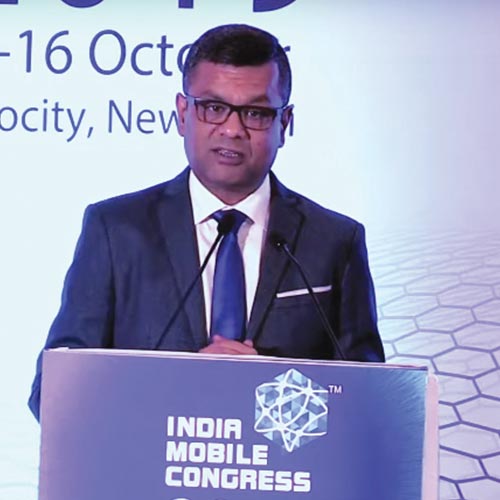
Ericsson India has introduced a new software toolkit to enhance 5G standalone network capabilities and support premium services with differentiated connectivity. This portfolio upgrade comes in response to the increasing demands on network capacity and performance due to new use cases and higher mobile user expectations for 5G quality.
The toolkit is designed for communications service providers (CSPs) to deliver use cases with high requirements on throughput, reliability and latency at agreed performance levels. Examples of these are lag-free mobile cloud gaming, video conferencing, live broadcasting, remote-controlled machines, public safety services and future XR applications. Some of these use cases were showcased at the Ericsson Imagine Live.
Ericsson’s innovative software toolkit offers enhanced features for Massive MIMO, Advanced RAN Slicing, Time-Critical Communication and 5G Core. It supports a three-pronged approach to delivering a network platform that turns performance into loyalty, value and growth - ensuring superior performance for mobile broadband services; offering differentiated connectivity for new, advanced consumer and enterprise use cases and, with these two building blocks, create programmable network performance on-demand through network APIs.
 Speaking at the event Nitin Bansal, Managing Director - Ericsson India states, “The advent of 5G is opening up new opportunities for operators, both in the established mobile broadband business and through the exploration of new value pools. Our new innovative software toolkit empowers our customers to unlock advanced 5G applications through differentiated connectivity. This not only delivers a high-performing on-demand network connectivity for service excellence, but also propels us toward our vision of networks as a platform.”
Speaking at the event Nitin Bansal, Managing Director - Ericsson India states, “The advent of 5G is opening up new opportunities for operators, both in the established mobile broadband business and through the exploration of new value pools. Our new innovative software toolkit empowers our customers to unlock advanced 5G applications through differentiated connectivity. This not only delivers a high-performing on-demand network connectivity for service excellence, but also propels us toward our vision of networks as a platform.”
Following the launch of 5G services in India, Indian customers are already experiencing enhanced mobile broadband and Fixed Wireless Access (FWA) services in the country, with a growing momentum in adoption of these services.
“The exploration of differentiated connectivity solutions for specific industries and network slices for enterprise and consumer applications, will represent a significant shift in the evolution of the mobile broadband business in India. Looking ahead, the emergence of programmable networks and the exposure of network capabilities to application developers presents another exciting development. This move has the potential to foster innovation at scale, allowing developers to leverage network capabilities through APIs to create solutions for different segments,” states Bansal.
The interconnected evolution of the mobile broadband business, FWA, private networks, and programmable networks showcases a layered approach to business development. Operators have the opportunity to pursue these avenues in parallel, maximizing their potential for value creation in the rapidly evolving 5G landscape.
With an aim to drive innovation in India, Ericsson has stepped up its research & development in the country and also formed academic collaborations with premier engineering institutes in the country. Ericsson’s Global Artificial Intelligence Accelerator is leveraging cutting edge AI technologies such as Generative AI, Trustworthy AI, Edge AI, Machine Reasoning and Intent-based Networks to create data driven, intelligent, and robust systems for automation, evolution, and growth. “Through the R&D work at GAIA, we are unleashing new revenue potential, business models as well as enabling new opportunities for telecom service providers in India and globally by ensuring network performance, creating future proof customer experiences and improving energy efficiency to meet demands of sustainability” states Mr Bansal.
Meanwhile, in February this year, Ericsson Research and Indian Institute of Technology Kharagpur (IIT Kharagpur) announced a long-term co-operation for joint research in the area of AI, Compute and Radio. Furthermore, collaborative research in the area of AI Verification for neuromorphic algorithms and compute systems has been started between Ericsson Research and Indian Statistical Institute (ISI) to foster both fundamental and applied research in Sustainable and verifiable Cyber-Physical Systems (CPS) which will have a strong impact in deploying AI and CPS in the Indian ecosystem.
Additionally, Ericsson Research in partnership with IIT Madras has committed significant resources for joint research whereby trustworthy, explainable and Bias-free AI models are being explored and developed for future AI-Native 6G networks. In summary, Ericsson Research is partnering with premier universities to infuse cutting-edge research techniques into relevant research problems for deploying 6G in India in line with global standards.
See What’s Next in Tech With the Fast Forward Newsletter
Tweets From @varindiamag
Nothing to see here - yet
When they Tweet, their Tweets will show up here.




























